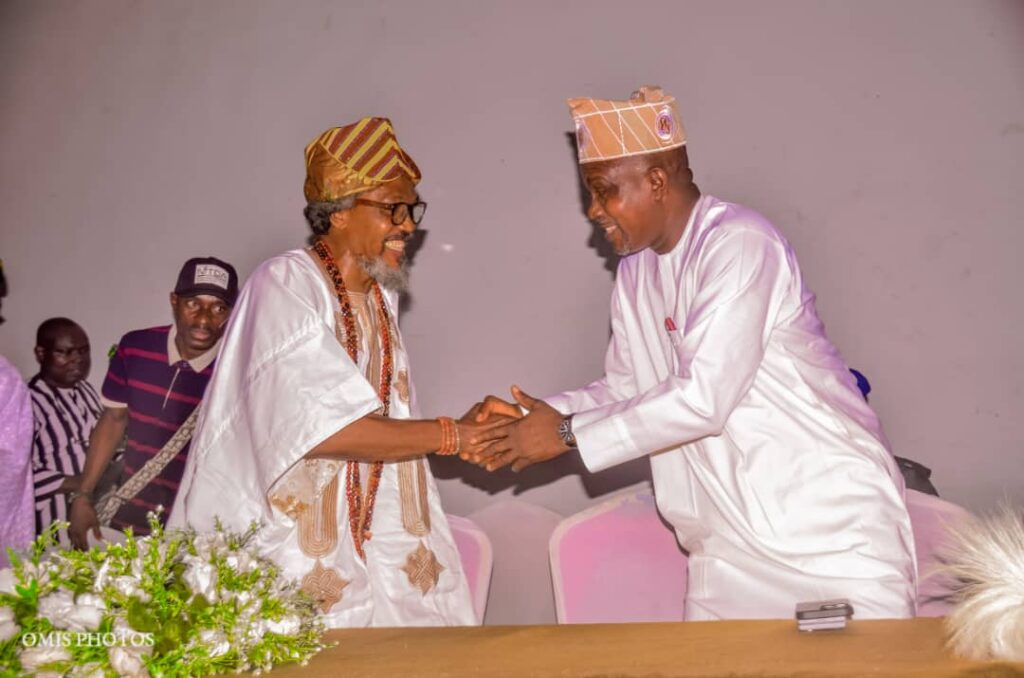The Orunto of Owu Kingdom, Chief Abiodun Lasile, declared on Tuesday, that traditional rulers must be recognised as key agents in tackling insecurity, moral decline, and social disintegration across Nigeria.
Speaking at the workshop organised for the Coronet Obas and Baales in Egbaland by the Senator representing Ogun Central, Shuaib Salisu.
The event brought together traditional rulers from the six local governments of Egbaland — Abeokuta South, Abeokuta North; Odeda; Ifo; Ewekoro;and Obafemi-Owode local governments as part of an educational and cultural advancement initiative.,
Chief Lasile who spoke on a powerful keynote address titled “The Enduring Legacy of Omoluabi: A Celebration of Traditional Excellence in Egbaland.” asserted that traditional institutions are not relics of the past but dynamic tools for peacebuilding, cultural preservation, and grassroots development.
“Traditional rulers are not mere figureheads. They are custodians of culture, guardians of communal peace, and connectors between the people and modern governance,” he said.
Highlighting the role of traditional values in societal progress, Lasile stressed that Yoruba virtues such as discipline, hospitality, respect for elders, and communal living form the foundation of a resilient and morally grounded society.
“These are not just ideals but pillars that sustain community harmony. Without them, society begins to unravel,” he warned.
He described traditional rulers as frontline responders to community issues, mediating land disputes, rallying support for education, and often leading efforts to return out-of-school children back to classrooms.
Chief Lasile further called for a strategic partnership between traditional rulers and formal government institutions to improve local intelligence gathering and enhance national security.
He noted that monarchs’ intimate knowledge of their domains makes them invaluable assets in combating crime.
“Traditional rulers know the pulse of their communities. They recognise unfamiliar faces and detect changes early. That insight is a powerful tool in crime prevention,” he said.
He decried recent attacks on traditional leaders by criminal elements, warning that such threats not only endanger lives but also weaken a vital tier of grassroots governance.
Beyond security, Lasile touched on historical precedents of accountable leadership, referencing the late Alake of Egbaland, Oba Ladapo Ademola, who abdicated in the 1940s following protests led by Funmilayo Ransome-Kuti.
He described the episode as a lesson in humility and people-oriented leadership.
“Leadership is service. The return of the Alake with a renewed commitment to serve should guide every leader today — whether traditional or political,” he said.
The Orunto of Owu outlined a six-point strategy to strengthen the relevance of traditional institutions. These include regular capacity-building workshops, using media to engage communities, transforming palaces into knowledge hubs, hosting solution-driven meetings, and promoting culture through festivals and traditional art forms.
He also advocated for constitutional recognition of traditional roles to integrate them into state governance structures.
“The time has come to move beyond ceremonial duties. Our traditional institutions must be empowered by law to function fully in leadership, education, security, and social reform,” he said.
In his remarks, Senator Shuaib Salisu commended the royal fathers for their commitment to community development, reaffirming his dedication to supporting traditional institutions as key partners in educational and cultural revitalisation across Ogun Central.
Do you want to share a story with us? Do you want to advertise with us? Do you need publicity for a product, service, or event? Contact us on WhatsApp +2348183319097 Email: platformtimes@gmail.com
We are committed to impactful investigative journalism for human interest and social justice. Your donation will help us tell more stories. Kindly donate any amount HERE




